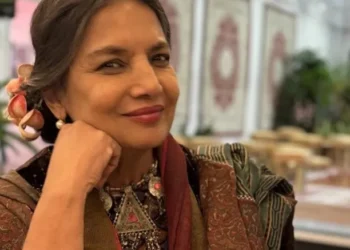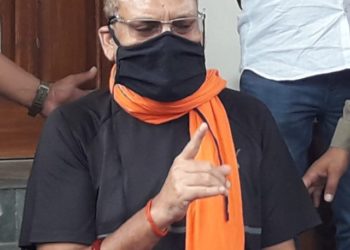‘Shooting for unrealistic body types is harmful’
According to National Eating Disorders Association, the International No Diet Day on May 6 encourages the rejection of diet culture. This movement, started by Mary Evans Jones in 1992, celebrates the importance of body acceptance, diversity, and respect for all body shapes and sizes.
The day is dedicated to promoting a healthy lifestyle with a focus on health at any size. It aims to eucate people about the right way to diet and not feeling guilty about indulging once in a while; create an acceptance of how your body looks and its uniqueness; and to end weight discrimination.
Nutritionist, sports consultant, psychologist Shwetha Bhatia, who is among the few dieticians recognized by the Indian Dietetic Association, Mumbai, shares her thoughts on the day’s importance that may make you rethink your approach to dieting culture.
“We must respect people of all sizes and their unique battles with body shaming and weight loss. However positive body image in no way should be an excuse for quitting and remaining unhealthy. As humans we do have a psychological association with food. This can reach unhealthy proportions in the form of emotional eating,” Bhatia tells IANSlife.
She emphasizes: “Shooting for unrealistic body types is harmful.”
“The focus should be health and fitness rather than a certain size or number on the scale. Shape is largely determined by your genes. So is the tendency to store fat and build muscle in certain areas..Even when you begin to lose fat, it leaves areas that were never meant to store it first,” she says.
With major celebs in her list of clients, Bhatia, 43, is a well-known name in the fitness and nutrition field.
She says: “A fit body always looks good. Aesthetics is the by-product when you have more muscle and less fat. Spot reduction does not work: When you exercise, it is working the muscle rather than burning the fat sitting above it. Fat burning is targeted trough the diet.
“A diet is a combination of nutrients your body needs on a daily basis to survive, repair and adapt. Being on a diet therefore means doing the right things most of the time in line with your heath and fitness goals. Going off the diet then means letting go once in a while such that does not throw you off the wagon.”
Finally, she advises: “Stop obsessing over calories and consumed and burnt: Exercise is for improving fitness, not trying to cancel out cheat meals. Calorie burning is the bonus and not the goal of the exercise program. The caloric value of foods is measured in a controlled environment in a lab. But in your body, your hormones and enzymes decide how these calories are released and used. All calories are not equal. Foods with similar calories take different pathways once digested and their fate depends on our hormones. Calorie counting without paying attention to quality and quantity of nutrients does not make sense, even within a calorie deficit plan. You may lose weight but healthy weight loss means less fat mass while gaining or maintaining muscle.”























